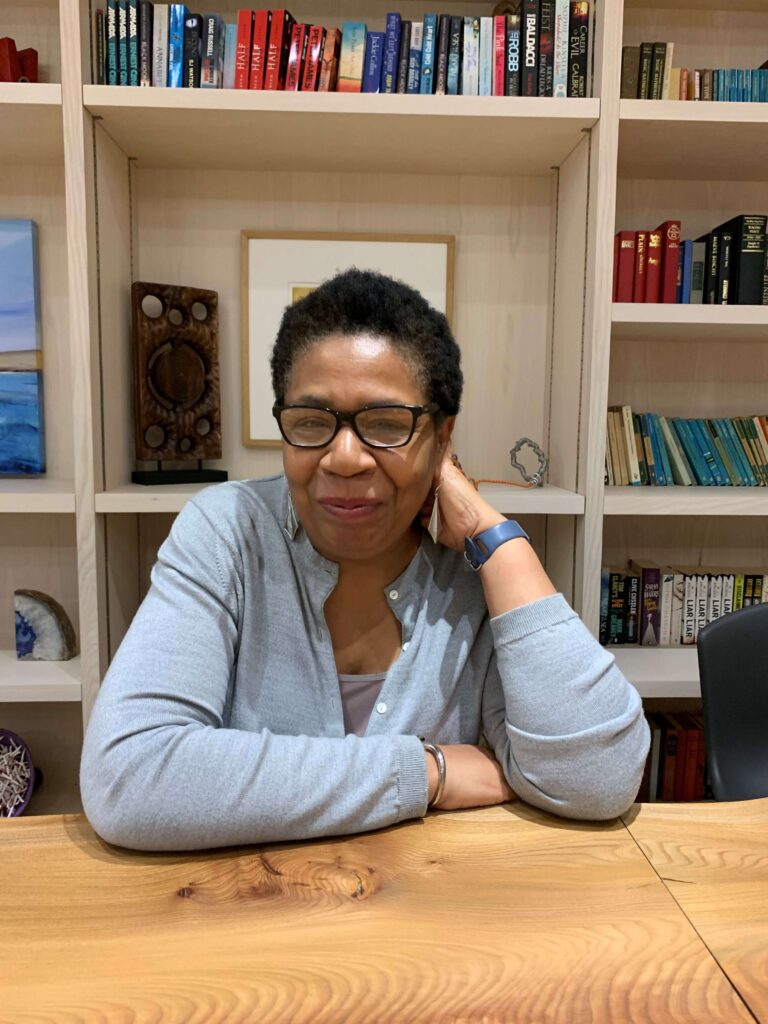Gail Rowe, Believ
By Anna Turns
When Gail Rowe’s father, an electrical engineer, first came to England in the 1960s, he was involved in deploying major infrastructure as part of the post-war revolution. Her mother, meanwhile, worked as a nurse in psychiatric health and geriatric care. It seems appropriate, therefore, that Gail’s own job as Interim Customer Director for the charge point operator, Believ, combines these two very different skillsets – nurturing relationships with local authority partners alongside electrical infrastructure, albeit as part of London’s electric transport revolution.
With a background in town planning and a passion for community development, Gail says that every day she’s inspired when she sees the positive change she and her team are making in real time: “There are always plenty of small, tangible measures of success. If I or one of my colleagues see one of our new on-street charging points, for example, we take photos and are passionate about the transition that’s happening right now,” she says. “I have never before worked in an environment where everyone involved truly feels part of this journey – all of us get excited by what we’re achieving together.”
Believ aims to accelerate the rollout of on-street charge points across the UK to aid the transition to EVs in a bid to help meet the government’s pledge to install more than 120,000 EV charging points by 2025.
Gail’s job involves managing relationships and collaborating with local authorities that are interested in deploying EV charging points: “We help them on their journey to carve out an EVCP network strategy,” she continues.
“Our approach is very evidence-based in terms of how we identify suitable locations and pinpoint exactly where to install charge points. But alongside that I really enjoy having conversations with residents, raising awareness of the benefits of having high-quality infrastructure and bringing people with us on the shift to decarbonise transport.”
Gail is always striving to break down some of the common misconceptions, fears and anxieties around using EVs in cities and reducing the reliance on petrol and diesel vehicles: “Actually, many people are really curious and positive about this change,” she adds.
Gail believes that as with any process of change, strong leadership is essential and diversity is key to getting everyone on side: “If we want to increase the number of people switching to EVs we need to make this mainstream and bring everybody on board, but at the moment the sector itself doesn’t necessarily look like people like me,” she explains.
“I also think that as women, we bring a different skillset,” says Gail, “and I firmly believe that the networks and support bubbles that people develop throughout their career play a crucial role in maintaining one’s own health and wellbeing. They also help in developing business opportunities.
“What’s brilliant about Believ,” she continues, “is that we have women in a variety of roles and in senior positions, from engineers, planning to financial controller, network operations, sales to marketing. So as a company, we’re living what we promote. We need to make sure our voices are heard more loudly and then we can have more of an influence.”
And her advice for other women considering a career in EVs? “Take a deep breath,” she suggests. “Be confident in your own abilities, drawing on your own skillsets and making them relevant. For example, coming from a local government background, I have a really good understanding of the local government landscape and can bring this experience to bear in the relationships Believ has with local government partners. I’d also encourage people to be proactive, get yourself out there, start new conversations, get involved with networks and play to your strengths. Learning and professional development is key, so making sure to continually refresh your skillset and knowledge base, and sit out of your comfort zone will ensure you remain ahead of the curve.”
Gail gives back and mentors young black planners. She’s an advocate for engaging with schools, colleges, universities and community organisations keen to find out more about getting involved in the low-carbon transport sector: “We’re always open to conversations with people and organisations interested in the sector and how they could potentially fit within our supply chain in the future.”





